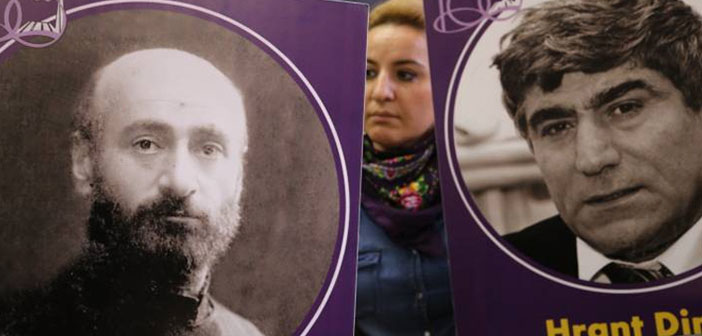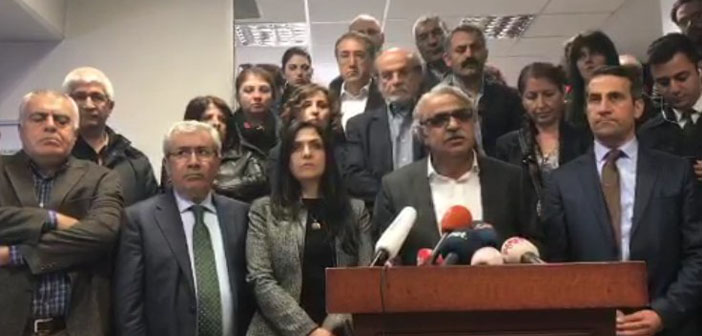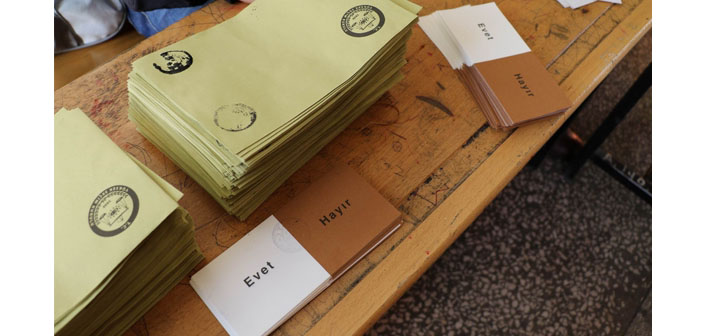Having contributed and conduced to many researches on Kurds and Kurdistan, Martin Bruinessen talked to Agos about the current condition of Kurdish question.
Last weekend, Faculty of Political Science of Marmara University and Friedrich Ebert Stiftung held a conference and many prominent scholars attended that conference. However, Martin van Bruinessen, the person who comes to mind while talking about Kurds and Turkey, was the scholar who has valuable assessments on the clashing period after the elections. He conducted field studies in the Kurdish regions in Turkey, Iran, Iraq and Syria between 1974 and 76 and after that, in 1978, he began to study on Kurdish question with his doctoral dissertation that is titled as “Agha, Shaikh and State”. From 1994 onward, he has been working in Utrecht University. He worked as a professor in the Kurdish studies department of Free University of Berlin. Now, he is a visiting professor in the Department of History of Bilgi University. Having contributed and conduced to many researches on Kurds and Kurdistan, Martin Bruinessen talked to Agos about the current condition of Kurdish question.
HDP is in the parliament. Kurds are a rising force in Middle East, but in Turkey, a war is coming.
There is an issue that I don’t get at all. I can understand why Erdoğan needs this war, but I don’t understand why PKK is acting in the way Erdoğan wants. This attitude of PKK didn’t help the Kurdish movement at all. Also, I don’t understand their actions either. Some Kurdish people are frightened by the shooting-war in the region, especially the conservative ones. Some people distanced themselves from the Kurdish movement. I think this is not a positive development for the Kurdish movement. It might be the case that PKK doesn’t want to be the victim and passively accept the operation of Turkish army and they feel that they should fight back by conducting some operations themselves. However, in my opinion, if they would have accepted the unconditional peace demand of Demirtaş and HDP, both PKK and HDP would have been in a better position now. I don’t know which party has the initiative in the field, but the choice of war is not good.
As a scholar who has been studying on Kurds for 40 years, did you expect HDP to pass the electoral threshold?
It was a great surprise. I didn’t think that HDP and its project will succeed. There were two reasons for this success. Firstly, in the presidential election, Demirtaş got 9.7% of the votes and every one said that people voted for Demirtaş, because he is special, they won’t support HDP in the parliamentary election. However, his party got more votes than him. There were many people who were against the presidential system and they voted for HDP thinking that HDP will prevent it. Secondly, conservative Kurds had chosen HDP against AKP. This might have been a reaction against ISIS. Conservative Kurds began to be worried about ISIS and its relation to Turkish state and they voted for HDP. But now, it might be the case that they are frightened by a possible war and returned to AKP. There are Kurds in AKP, they have some Kurdish politicians in the party and in the long term, Kurds will be on the agenda again. They will put the rights of Kurds on the agenda and demand peace negotiations again, though maybe not with HDP. They will remain as a pressure group in AKP.
So, unlike majority of people, you don’t consider the result of the last election as a failure of HDP.
No, I don’t. I thought they would have got more votes, but passing the threshold was more important. This means that HDP is still a part of the political system in Turkey; this is important for them and for Turkey as well. They will continue to have an important role in politics. They are still protecting the interests of Kurds, but they are still a party for all citizens of Turkey. As long as HDP is in the political scene, Kurdish movement won’t stay only within Kurdistan.
Yes, it is important that HDP is in the parliament, but AKP decided to go on with the operations and PKK broke the unilateral ceasefire. It is said that the peace negotiations are in the “fridge.” What are chances of ending these clashes?
For now, it seems that darker days are coming. However, a thing that is put into the fridge can be used again. Maybe there might be some problems, but the negotiations will continue. Peace processes are never easy. It is like two steps forward and one step back, or vice verse. But it will continue anyway.
AKP says, “The Kurdish question depends on us”, and HPD says, “There cannot be any solution without us.” What will happen then?
There are two parties in this issue: the state and the movement. PKK is the military representative of the movement. If there is a process, those two actors should take part in it. AKP has always been a coalition that contains different groups. That is why it has to find a common ground. It is also important that HDP is a coalition as well. They should have a major role in the process and they will have indeed. In politics, no one can have everything it demands. Politics is an act of negotiation. Now, AKP will negotiate with HDP, which has a stronger position now and it will compromise. For both parties, peace is important and necessary in the long run.
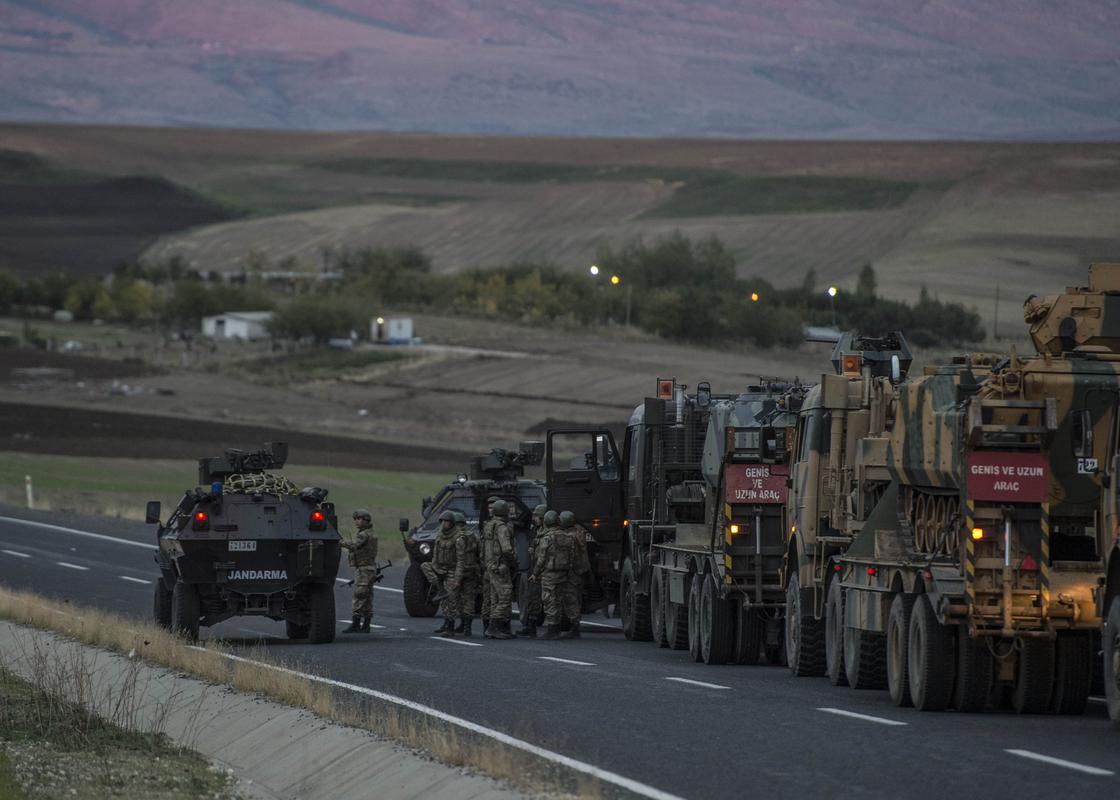
The peace process began with Öcalan’s letter that was read in Newroz in 2013. Since then, there were some developments and back-offs. It seems that we returned to where we have started.
In fact, the situation is worse compared to 2013. In 2013, everyone was thinking that the peace is close. Now, it is not that close, but it is still possible. Turkish state will eventually come to table with PKK. They need some time or maybe there might be some confidential meetings soon. Given that Turkey’s economic condition is not great, this is important. Syria was an important issue. Syria will continue to be a problem for Turkey for a long time. Syrian Civil War resembles the civil war in Afghanistan. Turkey’s position toward Syria is similar to Pakistan’s position toward Afghanistan. Refugees came to Pakistan from Afghanistan and now, they are coming to Turkey from Syria. Taliban was created by Pakistan and then it caused problems in Pakistan. Turkey supported the jihadist groups and created a problem for itself, because these groups began to be active Turkey as well. This affected the relation between PKK and the state.
There have been clashes in Silvan last week. People think that we are living ‘90s all over again. What do you think about that?
There are some differences. In ‘90s, PKK was trying to transform armed struggle to a political struggle and to organize the civil society. The people engaged in the civil society movements were murdered by unknown assailantsbetween 1993 and 95. PKK was trying to mobilize its people through Newroz. There were urban wars in Cizre and Şırnak. However, back then, the people in the cities weren’t that organized, and now, PKK-KCK organized its people. Though guerilla forces are still in the mountains, PKK’s civil organization is a more serious threat for the state. Guerilla forces can clash with the army, but how can the state conduct a war against children in the cities? For instance, in Diyarbakir, there are thousands of poor children in the city and they are ready to fight. The state can resort more violence there, but they cannot solve the problem like that. There were some clashes in Silvan for about 10 days, but killings and prohibition don’t change the way people feel and behave. The state has to struggle with a furious society that is really serious and committed. This is not easy. They killed 7 people in Silvan, but in the past, the state perpetrated more serious violence against Kurds. In 1992, during Newroz, more than 50 people were killed in Cizre in one day. In ’90s, the state was able to repress Kurds, but it is impossible now.
Well, how can there be peace with that fury and anger?
I think that only PKK can control the young people who fight in the streets now. HDP has no force over those people. There are two forces that can convince those people to withdraw from the war: PKK and Öcalan. A call for peace can only be made if the peace negotiations start again. Everybody wants solution, but it must be understood that there cannot be any solution without PKK and I think that the state knows this.
But, a couple of days ago, President Erdoğan said that he wants a united nation under the same flag and he pointed out that they will continue like that until 2023.
The audience there was consisting of extreme rightist and Islamists. He tries to appeal to different audiences. Every day, he says different things. We have to consider his actions, not his speeches. He tries to beat all of his opponents within the state. I think that after he has done with his opponents, he will consider a solution with PKK and Öcalan.
Do you mean that there will be a negotiation process like the one in Oslo?
Unfortunately, that process failed. This kind of meetings should be confidential.
But most people want to have information.
In fact, this kind of meetings starts confidential in order to discuss prerequisites. After that, civil policies begin to be operated for taking concrete steps. It is for preparing the society.
After the election on November 1, it is thought that HDP will return to the Kurdish region. What do you think?
The election result indicates that Turkish voters have some reservations against Kurds. However, the important thing is HDP’s presence in the parliament, because this means that they are not only a party for Kurdistan. I don’t think that HDP will return to the Kurdish region. Moreover, the relation between HDP and Muslims are better now compared to ‘90s. They get along. HDP succeeded in reconciling with religious people and taking common action with them. It means that Kurds began to put the ideological differences aside for their common interests. This is also important.
For years, you have been observing the clashes between the state and PKK. What kind of a difference do you see between the current and previous clashes?
Now, there is a different kind of violence; though it is intense, the violence exercised by the army after 1980 was far more serious. Now, there is violence in certain areas; it targets the neighborhoods where Kurdish movement is organized. The violence is intensely exercises in the areas where YDG-H is dominant. This is not a war that state can win. Now, the state tries to repress and destroy a new kind of a movement, but it won’t succeed.
At the conference, you said that we are going through interesting times. What do you mean?
Many common Turkish people, many Kemalists, started to think differently about Kurds. For instance, many Kemalists say that they like and appreciate Demirtaş. They don’t like anything he represents, but they like him. On the other hand, many people started to think that there is a kind of legitimacy in Kurdish movement and the state had done terrible things to Kurds; the awareness is significantly increased. You know, it was impossible to talk about the Armenian Genocide 10 years ago. There is a change and I find this important and valuable.
Considering the clashes, do you think that PKK is the one which dominates the Kurdish politics?
PKK has a major role in violence, not in politics. It seems to me that there are two different Kurdish movements in Turkey. One of them is the secular Kurdish movement: a movement that is inspired by PKK, that doesn’t side against PKK and doesn’t want to put a distance between itself and PKK though it doesn’t completely appreciate PKK. And the other movement grounds itself on Islam. There is a group which was against nationalism once and they are more “Kurdish” now. For instance, there is an interesting development in Hezbollah.
What kind of a development is this?
They used to be an Islamist organization. They are Kurdish, but they were against Kurdish nationalism. Their purpose was to create an Islamic society with their Muslim brothers. They became more like a civil society organization, especially after the murder of Hüseyin Velioğlu in 2000. In 2003, they established Mustazaf-Der, they turned to social cooperation. They started to get in contact with their people more openly. The people were frightened by Hezbollah and its violence. It reminded violence and the state within. They started to publish books in Kurdish, they had a TV channel. Their association is closed and they founded a political party and tried to mobilize their supporters. They started to celebrate the birth of Prophet Muhammad as an important means of mobilization, just like Kurdish movement has been using Newroz. This means that they tried to get closer with the masses. They created a new kind of Kurdish group. However, they got their share from the oppression that the state exercised against the secular Kurds. Because of this, political awareness of Kurds increased and they began to identify themselves through Kurdish identity. Muslim Kurds were refusing nationalism, but their discourse and feelings were nationalist, Muslim and conservative. They are still ideologically different than HDP, but they began to bring their identities as Kurds and the rights of Kurdish people forward. Majority of Kurds considers ISIS as the greatest enemy of Kurds. Religious Kurds acted as Kurds in the war between Kurds and a jihadist group. They stood in solidarity with Kobane.
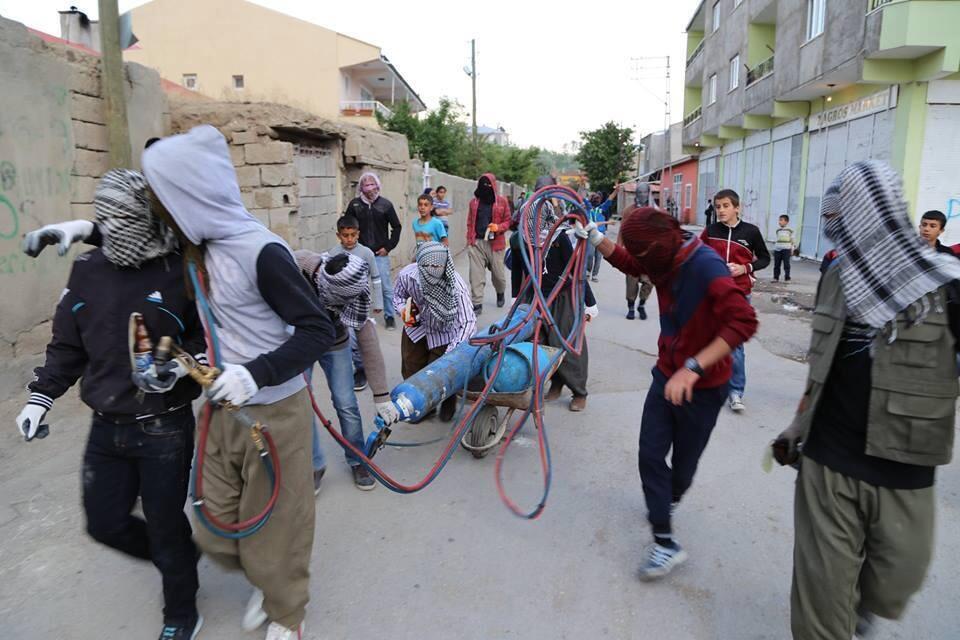
“Rojava is a really interesting laboratory for PKK”
For a while, Kurds have been acting together in “four different parts of Kurdistan”. However, there are contradictions between Kurds in Iraq, Syria and Turkey. Given the situation in Middle East, can Turkey win a war against Kurds?
It is not easy, but this is a simple answer. Turkey would benefit from good relations with Kurds in Iraq; they are friends of Turkey. I mean, there are great differences and war between Kurds. In Rojava, both KDP and PKK are very influential and they are fighting for hegemony. PYD won, but KDP didn’t accept this. Today, there is a war in Sinjar; Kurds removed ISIS from Sinjar. However, Kurdish forces, meaning KDP Peshmarga and PKK guerillas, don’t give each other the right to save Sinjar. It means that the contradictions between them are very important. And there is a competition between Barzani and PKK for Kurds in Turkey. In Kurdistan region in Turkey, most people refrain from PKK and think that Barzani is more like them. This means that the coalitions will be difficult. However, KDP and PKK will always be there and Turkey has to find a way to reconcile both of them, since it will be living them.
There were many threats against Iraqi Kurdistan, but now, the relations are very good. Why does a canton that is to be established in Syria alarm Turkey?
First of all, Turkey wants Esad to be gone. The situation is quite different. Turkey doesn’t recognize the central Syrian state. The central state recognizes the autonomy of the Kurdish regions to some extent; it is not an official recognition. For instance, the civil servants in Rojava are paid by the central state. Secondly, Turkey sees PYD as a part of PKK; as a matter of fact, Turkey thinks that there is no difference between them. Rojava is an interesting laboratory for PKK in terms of representation and Turkey sees this as a threat.
You mean that they are afraid of democratic autonomy in Rojava?
Yes, in Rojava, democratic autonomy is practiced. In fact, there are people in AKP who support decentralization, but no one tells what is the difference between this notion of decentralization and democratic autonomy of Kurds. They might be quite similar and democratic autonomy might not be a threat to Turkey.
At the conference, you said that Kurds still want to have Kurdistan.
I meant the supporters of the Kurdish movement. They read the books and bulletins, they attend seminars, but in their heart, there is still Kurdistan. Kurdistan is very important for them.
Why?
HDP’s project doesn’t work perfectly, so they think that they could demand an independent Kurdistan. This is a very common demand. I observe this reaction, but there are PKK and HDP. HDP organizes people and directs their behavior. They still believe in their project and they want to continue with peace negotiations in this way. This is a great opportunity for Turkey and I hope that Kurdish movement won’t abandon it.



